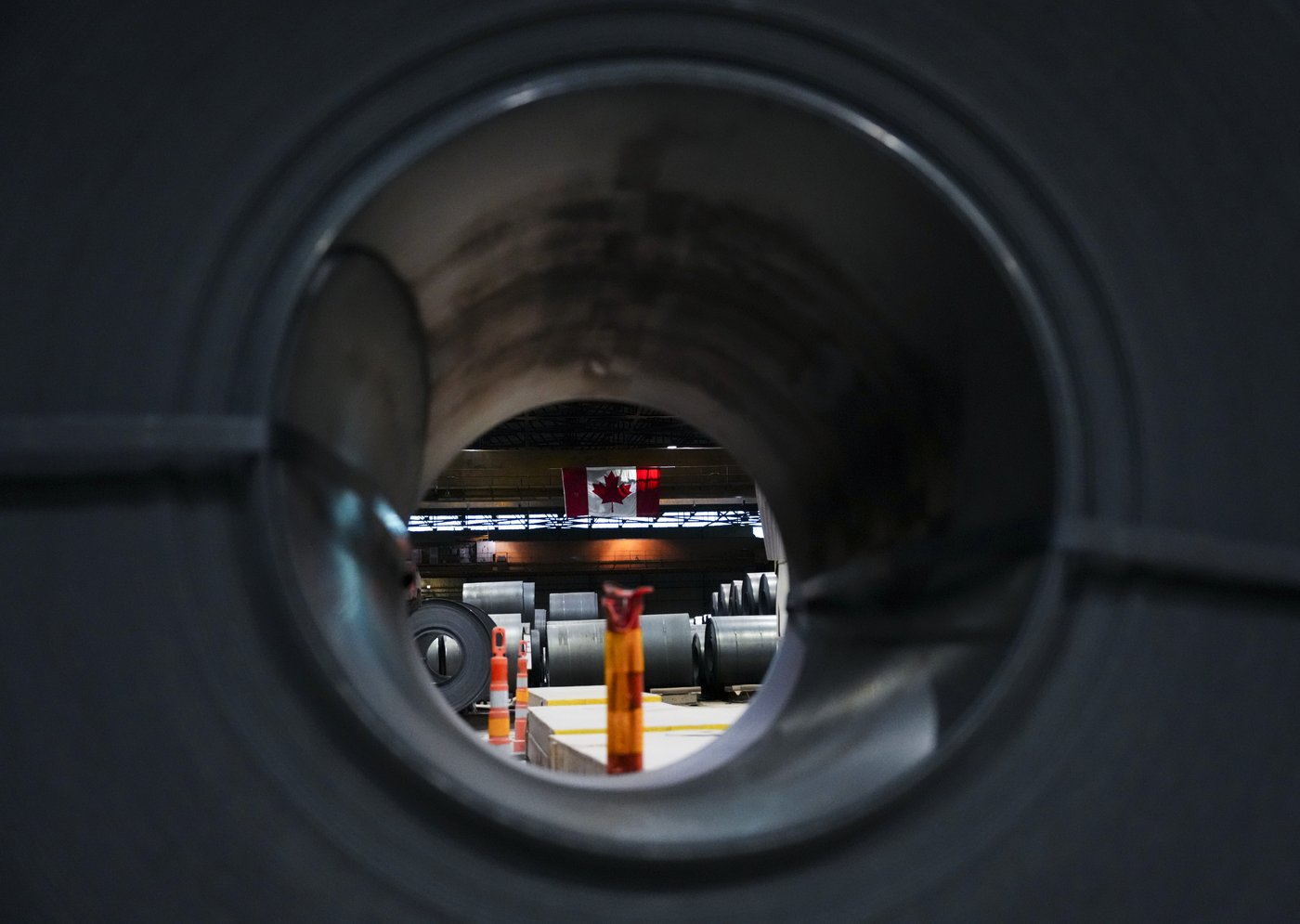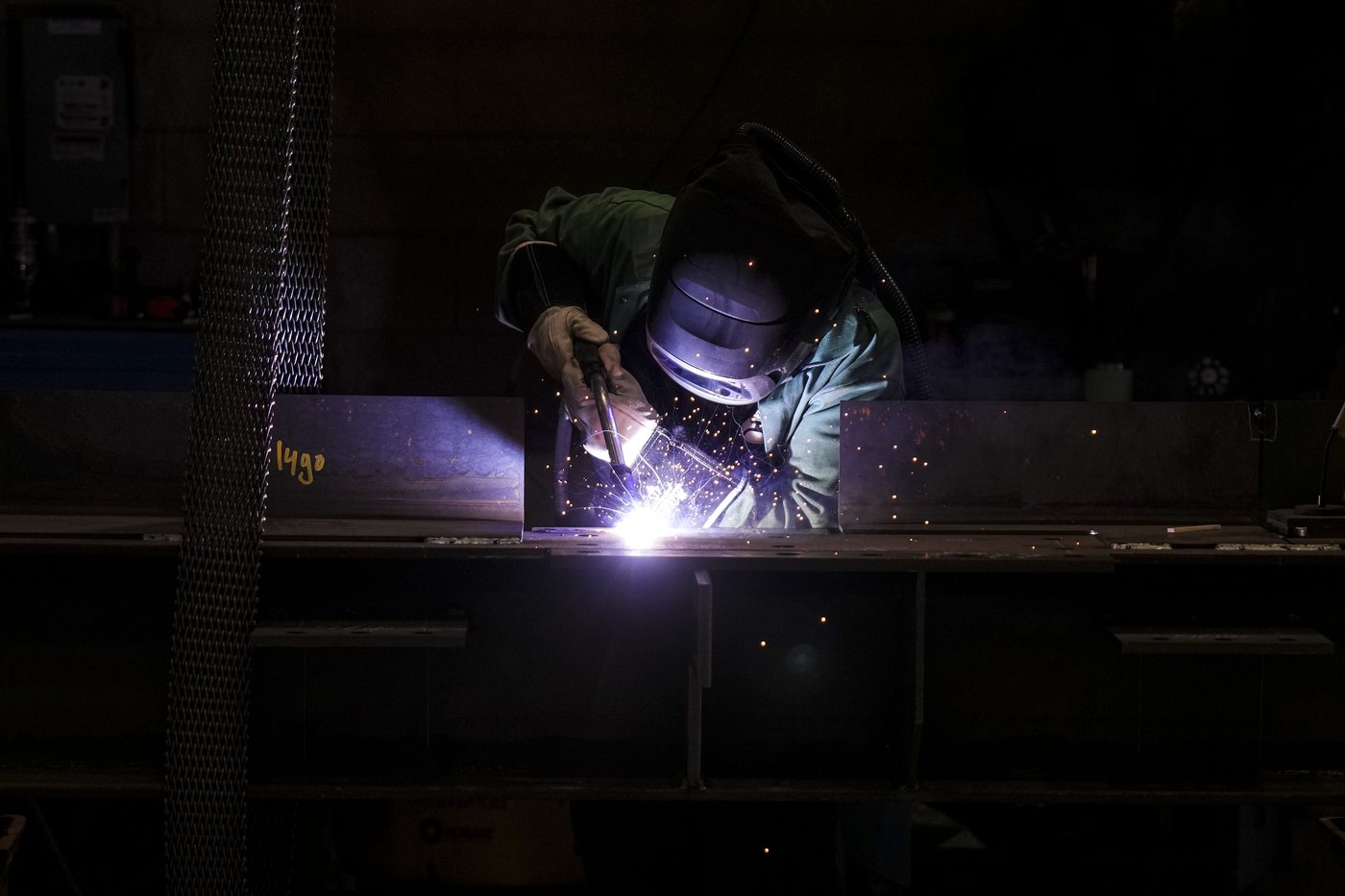
Canadian defence firm to make ballistic steel through Swedish partnership
OTTAWA — Canadian defence manufacturer Roshel is partnering with a Swedish steel company so it can produce ballistic-protection steel domestically for the first time.
Roshel, which manufactures vehicles, will now be able to use Swebor’s intellectual property to produce ballistic steel in Canada.
The agreement comes as Canada is looking to boost domestic steel consumption and build up Canada’s defence sector to be less reliant on the United States amid the ongoing trade war with U.S. President Donald Trump.
Ballistic steel is a special type of relatively lightweight, hardened steel that protects against blasts or bullets.
Roshel CEO Roman Shimonov said despite Canada producing vast quantities of steel, there isn’t currently a domestic facility that firms like his can turn to for sourcing the ballistic shielding needed for armoured vehicles or drones.
“It’s mind blowing,” Shimonov said in an interview with The Canadian Press. “This is pretty similar to the oil industry, where we have the sources of oil but we are not refining.”
Shimonov said the current lack of Canadian-sourced ballistic-grade steel causes headaches for domestic defence firms, who have to import the special steel for their vehicles and ships from the United States, Europe and Australia.
“We have this bottleneck of the ballistic steel, where every time, (even) when we need to address an immediate need, we have to secure it over a year ahead of schedule,” he said. “Our government and many other governments, they don’t plan in years. You never know how many vehicles and how many products will be ordered in the following year.”
He said this move would not just address his company’s own needs, but also more broadly provide a product that can be used in defence, mining and even agriculture.
Roshel has facilities located in Brampton and Mississauga, Ont., where the first part of the steel production will take place. The firm specializes in design and manufacture of armoured vehicles, largely for G7 countries like Canada. Some 2,000 of its units are deployed in Ukraine.
David Perry, president of the Canadian Global Affairs Institute, said the new partnership will bring an “injection of foreign expertise and knowledge transfer” to Canada.
Canadian steel markets have the potential to supply these kind of armour products but haven’t done it because they focus on other customers, largely in the U.S. market, that had different production requirements, Perry explained.
“Steel that goes into commercial buildings doesn’t have to have the same kind of tolerances that a ballistic product has to have,” Perry said. “It needs ingrained level of protection to be able to stop a bullet. It’s a different end-product. You use a different process, different capital-intensive machinery to make it, you don’t have the same kind of training.”
Perry also said this is one of a small but growing number of initiatives to increase defence ties with Europe, which comes as Ottawa eyes expanding defence partnerships abroad amid turbulence with the U.S.
Industry Minister Mélanie Joly attended the signing of the agreement in Sweden on Monday.
Joly is currently on a week-long trip to Stockholm and Helsinki with Secretary of State for Defence Procurement Stephen Fuhr, as they look for ways to expand ties with Europe in the defence space.
This report by The Canadian Press was first published Aug. 19, 2025.

Join the Conversation!
Want to share your thoughts, add context, or connect with others in your community?
You must be logged in to post a comment.



















